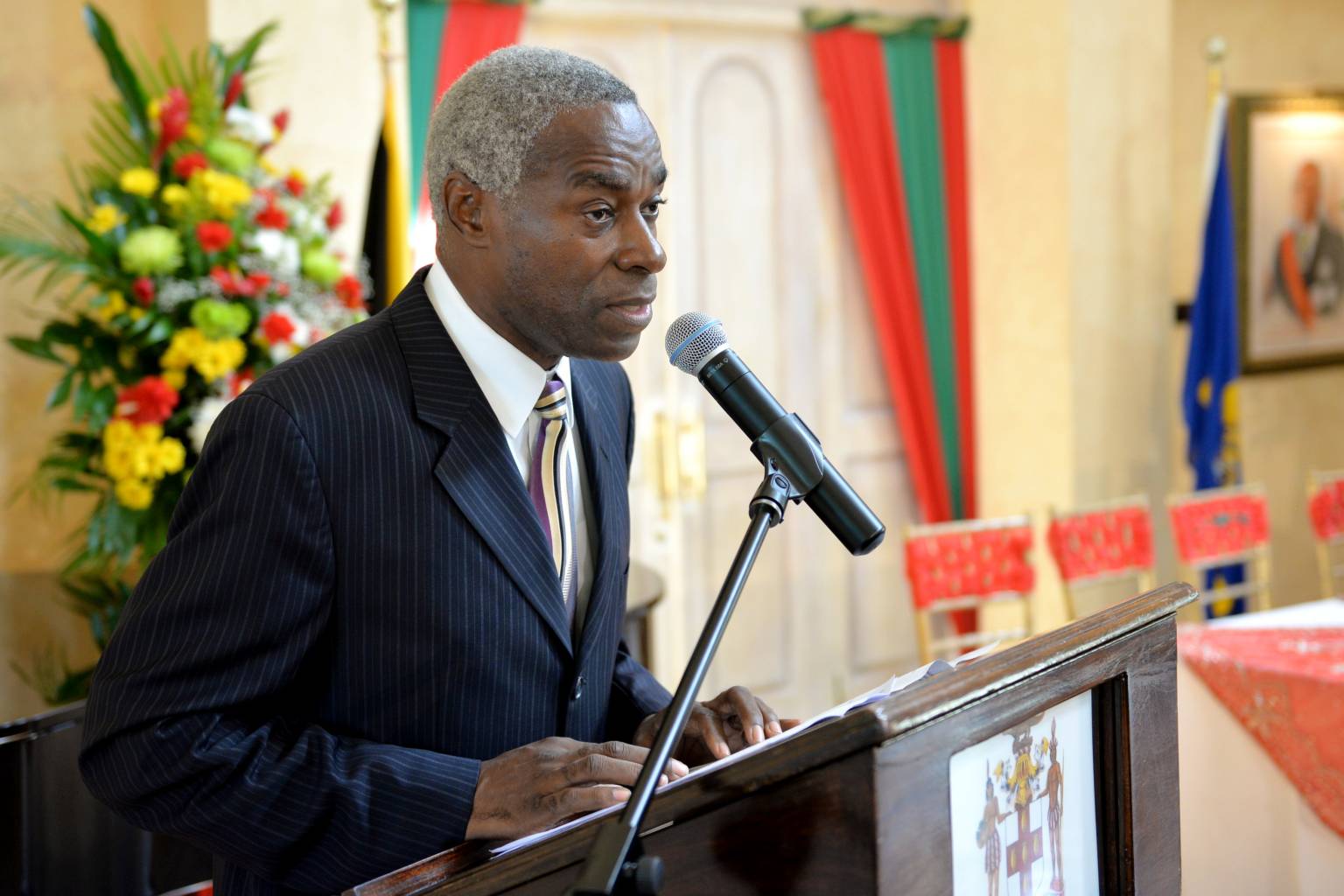Professor Wint Chronicles Events Leading To Partnership for a Prosperous Jamaica
By: , December 11, 2016The Key Point:
The Facts
- Speaking at the launch at King’s House on December 7, Professor Wint noted that the current initiative, being led by Prime Minister, the Most Hon. Andrew Holness, has its origins in an initiative that was guided by his predecessor, Hon. Bruce Golding.
- Professor Wint, a member of the National Partnership Council and its Coordinating Committee, said Mr. Golding presided over the establishment of the first-ever National Partnership Council in 2010.
The Full Story
University of the West Indies (UWI) Pro Vice Chancellor, Professor Alvin Wint, says the newly established Partnership for a Prosperous Jamaica marks the continuation of a series of social-partnership engagements that have been undertaken across three successive administrations.
Speaking at the launch at King’s House on December 7, Professor Wint noted that the current initiative, being led by Prime Minister, the Most Hon. Andrew Holness, has its origins in an initiative that was guided by his predecessor, Hon. Bruce Golding.
Professor Wint, a member of the National Partnership Council and its Coordinating Committee, said Mr. Golding presided over the establishment of the first-ever National Partnership Council in 2010.
He said regular meetings by the membership led to the signing of a Partnership Code of Conduct in 2011.
Professor Wint pointed out that, subsequently, Jamaica’s first-ever social partnership, the Partnership for Jamaica, was established under the purview of former Prime Minister and current Opposition Leader, the Most Hon. Portia Simpson Miller, for which an agreement was signed in 2013.
He said the ensuing engagements involving the country’s social partners piqued the interest of members of the international community, who welcomed the agreement and the priority areas.
These included fiscal consolidation, with social protection and inclusion; rule-of-law adherence and timely justice outcomes; improved ease of doing business; employment creation; and energy diversification and conservation.
Notable among the persons who welcomed the agreement was the United States foreign-policy specialist, Robert Looney, who noted that “it (was) refreshing to hear some good news about the country”, in the face of the prevailing fiscal and social challenges, crime and violence.
Additionally, Professor Wint said International Monetary Fund (IMF) Managing Director, Christine LaGarde, in praising Jamaica’s economic-reform programme implementation, lauded the Administration’s establishment of an Economic Programme Oversight Committee (EPOC).
She said that EPOC was a notable example of cooperation in the execution of a reform programme that the IMF had not encountered anywhere else in the world… but would be recommending to other countries.
Professor Wint also highlighted work undertaken by former Prime Minister, the Most Hon. P.J. Patterson, in developing a “carefully researched” National Industrial Policy, incorporating a consensual framework for addressing several crises facing the nation at the time.
He noted that the policy was multifaceted, focusing on key areas such as public-sector reform, and improved physical infrastructure, including reducing the price of electricity through cogeneration projects between the Jamaica Public Service Company and large users of electricity, such as those in the bauxite and alumina industry.
Professor Wint pointed out that it was sequentially phased, with the first phase focused on establishing the conditions for a social partnership, organised around the goal of growth and development with stability.
“It stated what that social partnership should look like, being a consultative system… to allow systematic and regular interactions between the Government, business, labour and non-governmental organisations,” he added.
Professor Wint indicated that, from the outset, “we had determined that what our country needed was a quadripartite system… to promote an active partnership on a continuing basis, so as to share ideas on policy and strategy formulation, to explore issues and to resolve problems”.
He said, however, that this social partnership was never established, “and in my view and the view of much research, it, more than any other factor, was the reason we never achieved the results and the targets established under the National Industrial Policy.”
Professor Wint contended, however, that based on work to this end over the ensuing years, “Jamaica is in a better place today as a result of the cooperation that has been occurring among our social partners.”
“This is what makes today’s (December 7) signing of the Partnership for a Prosperous Jamaica… such a noteworthy event. It focuses on growth inducing opportunities associated with effectively responding to the continued crises of high debt, low growth and notable lack of adherence to the rule of law,” he said.
Additionally, Professor Wint said it emphasizes transformation of the public sector to one that is “primarily focused on enhancing Jamaica’s growth in a sustainable and inclusive manner.”
The Partnership for a Prosperous Jamaica aims to significantly improve Jamaica’s record of economic growth over the duration of its implementation, from 2016 to 2020.
It is a quadripartite collaboration involving the State, comprising the Government and Parliamentary Opposition, and representatives of civil society, the trade union movement and private sector who along with other stakeholders, constitute the Partnership Council that will administer the agreement.
Over the next four years, the initiative will focus on advancing activities in five priority areas. They include: inclusive economic growth and job creation; public sector transformation for efficiency and effectiveness; adherence to the rule of law and timely justice outcomes; national debt reduction and enhanced macroeconomic stability; and enhanced tourism flows and inter-sectoral linkages.

